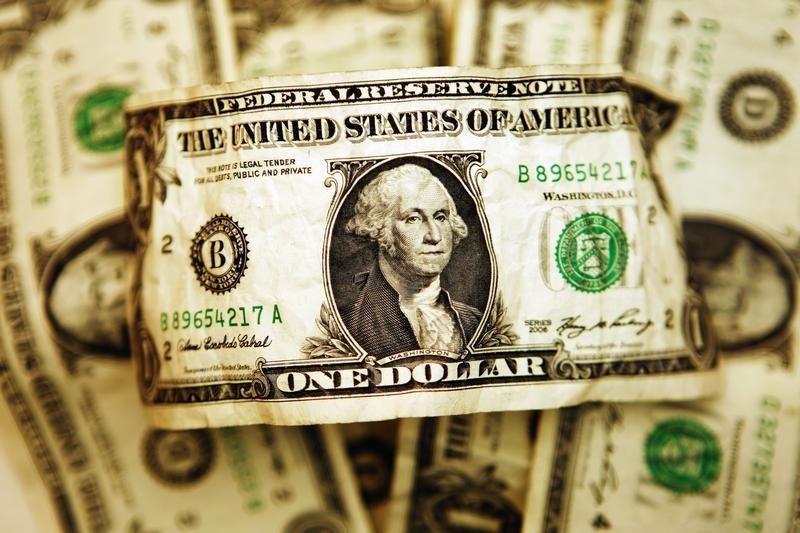 © Reuters.
© Reuters.
Investing.com -- Most Asian currencies fell on Friday and the dollar strengthened after Federal Reserve Chair Jerome Powell reiterated the need for more rate hikes, while a bigger-than-expected rate hike from the Bank of England also rattled sentiment.
Powell finished his two-day testimony before Congress by reiterating that U.S. interest rates could rise at least two more times this year to contain high inflation.
His comments came after the BoE hiked rates by twice as what markets were expecting, ramping up fears that major global central banks were far from done with their rate hike cycles, given stubborn inflation levels.
Rising interest rates in the West bode poorly for Asian currencies, as the gap between risky and low-risk yields narrows. Most regional units fell on that notion.
The Australian dollar was among the worst performers for the day, tumbling 0.7% in tandem with steep losses in commodity prices. Data released on Friday showed some improvement in Australian business activity through June, although manufacturing still remained in contraction.
The rate-sensitive South Korean won lost 0.3%, while the Malaysian ringgit fell the most across Southeast Asian currencies with a 0.6% loss. Still, regional trading volumes were somewhat muted on account of a Chinese market holiday.
Japanese yen flat as strong inflation pressures dovish BOJ bets
The Japanese yen was flat after sinking to more than six-month lows against the dollar in overnight trade.
Data released on Friday showed consumer inflation grew slightly more than expected in the 12 months to May. But a core reading that excludes food and fuel prices jumped to a 42-year high during the month, indicating that underlying Japanese inflation remained heated.
The trend puts more pressure on the Bank of Japan to tighten policy this year, although the bank recently reiterated that it has no plans to alter its ultra-loose policy.
Still, any potential tightening in Japanese monetary policy could help spur some strength in the yen, which has come under heavy pressure from a dovish BOJ.
The Japanese currency was also rapidly approaching levels that could invite intervention in currency markets by the government.
Dollar strengthens, Fed speakers awaited
Fears of rising rates in the West drove up demand for the dollar, with the dollar index and dollar index futures adding 0.2% each in Asian trade.
Powell’s comments also sparked flows into the greenback, as markets began pricing in a nearly 75% chance that the Fed will hike rates further in July.
Focus is now on a slew of Fed speakers later in the day- James Bullard, Ralph Bostic and Loretta Mester - for more cues on monetary policy.

